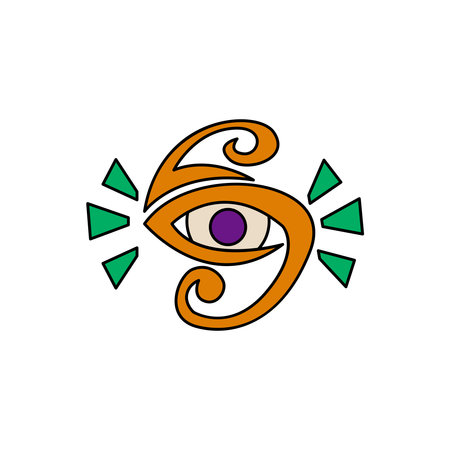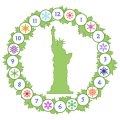Ancestral Roots: The Celtic Worldview on Fate
Step gently into the mist-laden valleys of ancient Britain and Ireland, and you’ll find the Celts living with a deep sense that fate was not just a distant, abstract force, but a living thread woven through every aspect of daily life. In the Celtic imagination, destiny was never rigid or oppressive; rather, it echoed in the wild wind over standing stones and whispered through sacred groves. The Celts saw themselves as participants in a great cosmic dance, their lives intimately entwined with the cycles of nature—the ebbing tides, the waxing moon, and the perpetual turning of the seasons. This worldview was vividly reflected in their myths and spiritual practices, where legendary heroes often encountered crossroads not only upon their journeys but within their own souls. Just as autumn gives way to winter and then to spring’s renewal, so too did the Celts believe that each person’s path was shaped by the shifting interplay of fate and choice, honouring both ancestral wisdom and personal courage as they navigated the mysteries of existence.
2. Of Wyrd and Weaving: Storytelling, Prophecy, and Connection
The ancient Celts understood fate not as a cold, inescapable decree from distant gods, but as a living tapestry—constantly woven by the threads of stories, omens, and human choice. Central to this worldview were the bards and seers, those rare souls who moved between worlds: bearers of memory, interpreters of dreams, and keepers of prophecy. Their songs and tales did more than entertain; they shaped how communities perceived their place within the great web of existence.
For the Celtic peoples, storytelling was a sacred act—a way to transmit wisdom across generations and bind individuals into the collective soul of the tribe. Every tale carried echoes of wyrd (a term akin to “fate” or “becoming”), reminding listeners that each life was a strand interlaced with countless others. Seers—known as druids or fili—would interpret signs in the flight of birds, the patterning of leaves, or the whispered voices of ancestors. These prophecies weren’t rigid blueprints but invitations to engage with destiny consciously, honouring both inevitability and agency.
The Interplay of Storytelling and Fate in Celtic Culture
Element |
Celtic Practice |
Purpose |
|---|---|---|
Bardic Tales |
Sung histories, myths, and genealogies | Preserved lineage; taught moral lessons; fostered communal identity |
Prophecy & Omens |
Reading nature’s signs; divination rituals | Guided decisions; affirmed connection to land and ancestors |
Community Rituals |
Shared seasonal festivals; storytelling circles | Strengthened bonds; synchronised community with cosmic cycles |
This intricate interplay between prophecy and storytelling imbued everyday life with meaning. When a bard recounted the saga of an ancestor’s triumph or loss, listeners recognised their own potential for greatness or folly. In interpreting omens before battle or harvest, seers affirmed that fate was neither wholly fixed nor entirely random—it was something lived in relationship with others and with the unseen forces that moved through land and lineage. Such practices cultivated a sense of belonging rooted in both mystery and shared purpose—a uniquely Celtic vision where every story mattered because every thread contributed to the whole.
![]()
3. Fatalism in the Folk: When Destiny Feels Inescapable
Walk through the misty glens and ancient forests of Celtic lands, and you will soon hear stories where fate is not just a distant concept but a living, breathing presence. The old tales—woven into the very fabric of British folklore—often present characters who find themselves face to face with prophecy. Think of Deirdre of the Sorrows, whose tragic destiny was foretold before her birth; or the legendary King Arthur, whose rise and fall seemed inscribed by forces beyond his own hand. These stories invite us to ponder: when does acceptance of fate become a heavy chain, and when might it be a source of solace?
The Weight of Prophecy
In many Celtic narratives, prophecy arrives as both a warning and an inevitability. The characters may rail against their foretold ends—sometimes with fiery defiance, sometimes with quiet resignation. Yet more often than not, the wheel turns as predicted. This recurring motif hints at a deep-rooted belief among the Celts that some events are simply destined. The question becomes whether one’s energy is better spent fighting what must come or preparing to meet it with dignity.
Burden or Comfort?
To modern ears, fatalism can sound oppressive—a giving up of agency. But for those immersed in these ancient traditions, surrendering to fate could offer comfort. After all, if your path is already written in the stars or whispered by druids in sacred groves, then perhaps you are relieved of endless striving and second-guessing. There is a peculiar freedom in knowing that you are part of something larger than yourself, bound into the great tapestry of existence.
Ripples Through British Folklore
This dance between fatalism and free will did not remain confined to Celtic myth alone; it seeped into broader British folklore, colouring legends from Scotland to Cornwall. Ghostly omens on moonlit moors, tales of changelings and doomed lovers—all echo this tension between accepting destiny and daring to defy it. Even today, echoes of these beliefs linger in local superstitions and sayings, a testament to how deeply the idea of inescapable fate runs through the collective imagination.
4. Free Will in the Forest: Choice, Courage, and the Hero’s Path
The ancient Celtic imagination was densely wooded—a place where every path could twist suddenly, and fate itself might be challenged by a determined soul. In their tales, heroes and heroines did not merely accept the lot that prophecy or druids foretold. Instead, they strode into the forests of uncertainty, shaping their destinies through acts of will and courage.
Defiance in the Face of Fate
Celtic legends abound with characters who refuse to bow to fatalism. Think of Cú Chulainn, who, despite warnings of an early death, chooses glory on the battlefield. Or Deirdre, who escapes a predetermined marriage to seek her own happiness, even as tragedy shadows her every step. These figures illuminate the belief that ones spirit can carve out a unique path, no matter how thickly woven the threads of destiny may seem.
Wisdom from Uncharted Paths
Each bold decision—each defiance of “the stars”—comes with its own lessons. The Celts valued experiential wisdom; the kind only gained by walking into the unknown rather than accepting what is handed down. The forest becomes a metaphor for life itself: unpredictable and wild, yet rich with opportunities for growth and self-discovery.
Celtic Heroes: Fate Versus Free Will
| Hero/Heroine | Fated Outcome | Choice Made | Lesson Learned |
|---|---|---|---|
| Cú Chulainn | Early death foretold | Chose battle and honour regardless | Courage defines legacy more than longevity |
| Deirdre of the Sorrows | Arranged marriage prophesied | Sought love and freedom instead | The heart’s longing is worth risking sorrow for |
| Fionn mac Cumhaill | Destined for greatness but isolation | Broke away to lead Fianna in unity | True leadership is born from shared trials |
This interplay between fate and free will forms the essence of the Celtic hero’s journey—a dance between surrender and sovereignty. By making courageous choices in spite of ominous predictions, these legendary figures invite us to consider our own capacity to shape destiny. The wisdom gleaned from such stories whispers through British woodlands still: sometimes, it’s not about knowing where you’ll end up, but having the courage to choose your way there.
5. Between Stone Circles and Sacred Wells: Modern Celtic Spirituality
Across the rolling hills of contemporary Britain, an ancient pulse still echoes beneath the surface—a rhythm that calls seekers to stone circles at dawn, to sacred wells shrouded in moss, and to firelit gatherings beneath vast, star-strewn skies. The modern British fascination with fate and free will is finding new expression through a revival of Celtic-inspired rituals and festivals, weaving together heritage and hope in ways both mystical and pragmatic.
The Return to Ritual
From Beltane fires on Calton Hill to silent vigils at Glastonbury Tor, people gather not merely for spectacle but for connection—both with each other and with the unseen threads binding past, present, and future. These gatherings are more than nostalgic reenactments; they are living dialogues with fate. Here, fatalism does not mean passivity. Instead, rituals become a dance between surrendering to the greater flow and consciously shaping one’s path through intention, prayer, or symbolic acts like tying rags on clootie trees or casting offerings into holy springs.
Celtic Wisdom in Everyday Life
This Celtic revival seeps gently into daily British life. Tarot cards shuffled over tea in urban flats, ogham carvings tucked into pockets as talismans against uncertainty, or simply walking labyrinthine countryside paths while pondering life’s crossroads—all serve as reminders that fate is not a chain but a conversation. The old belief that destiny whispers through landscape and coincidence finds resonance among those seeking meaning beyond material certainty.
Festivals as Liminal Spaces
Contemporary festivals such as Samhain or Imbolc offer liminal spaces where participants symbolically die to old patterns and welcome new beginnings. In these moments, fate is neither feared nor worshipped blindly; instead, it is engaged with respectfully. People write intentions by candlelight or leap over bonfires with laughter—acts that blend the ancient sense of being “woven” by the gods with a distinctly modern urge towards self-determination.
Thus, between stone circles and sacred wells, modern Celtic spirituality in Britain becomes a living bridge: an invitation to embrace both the mystery of what may come and the power within to shape it. It is here—in this subtle dance—that fate, fatalism, and free will meet under wide British skies, guiding seekers gently home to themselves and their land.
6. Bridging Fate and Freedom: The Dance of Destiny Today
As we gather around glowing firesides or lose ourselves in the pages of a novel on a rainy British afternoon, echoes of Celtic musings on fate and free will quietly thread through our collective consciousness. The ancient Celts, with their reverence for prophecy and omens, did not merely surrender to fatalism—they wove it into vibrant tales that celebrated the power of personal choice. Today, these age-old beliefs are alive in how we tell our own stories, wrestle with crossroads, and interpret the twists of destiny that shape our lives.
The British psyche remains gently haunted by this duality. In every folk tale retold from Cornwall to the Highlands, the tension between what is meant to be and what might yet be chosen plays out again and again. Our literature—think of Shakespeare’s witches or the tragic heroes of Hardy—reminds us that fate may beckon, but it is human courage and defiance that give the tale its heart. Even now, in moments of uncertainty, we might find ourselves wondering whether “what will be, will be,” or whether a single act of will can change everything.
But perhaps this is not a contradiction; perhaps it is a dance—a rhythm set long ago by druidic fires and bardic songs. To live with both fate and freedom is to recognise that while some paths seem laid before us, every step we take is ours alone. The modern Brit may not consult ogham stones or seek out wise women on windswept moors, yet the longing to divine destiny—and rewrite it—persists in everyday choices, whispered hopes, and bold leaps into the unknown.
So as you reflect on your own journey—your ancestry, your choices, your dreams—consider how this Celtic inheritance shapes you. Are you quietly guided by the sense that something greater is at work? Or do you find strength in knowing your story is yours to write? Perhaps you carry both within you: a belief in threads spun before birth, and a fierce delight in snipping and weaving them anew. In this delicate balance, the ancient Celts still walk beside us—reminding us that fate and freedom are not enemies but companions on the ever-unfolding road.


